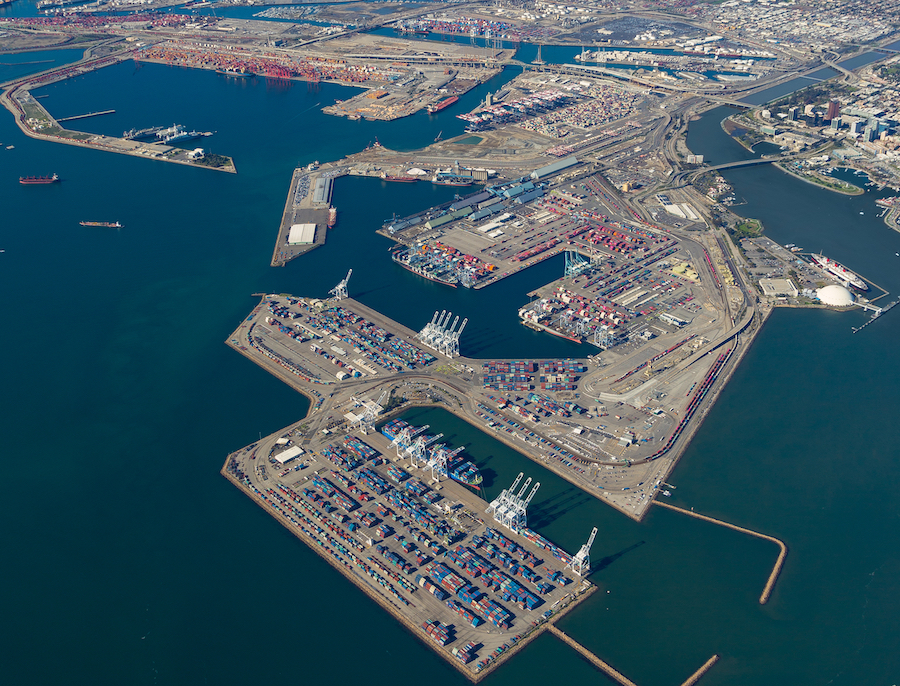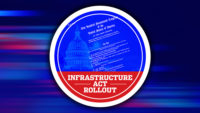As government and industry officials try to find ways to unclog near-term supply-chain problems, the U.S. Dept. of Transportation and the state of California also are initiating a program aimed at longer-range freight infrastructure trouble spots. The plan's goal is to smooth the path to tap federal loans to help pay for supply-chain-related port, rail and highway infrastructure projects.
The "Emerging Projects Agreement," which Biden administration officials and California Gov. Gavin Newsom (D) announced on Oct. 28, would draw on two long-standing DOT loan resources, the Transportation Infrastructure Finance and Innovation Act (TIFIA) and Railroad Rehabilitation and Improvement Financing Finance Act (RRIF) program.
Both provide long-term, low-interest loans with lengthy repayment terms for infrastructure projects.
The TIFIA and RRIF loans typically go to individual projects. The new twist in the California-U.S. DOT program is that it would cover groups of related projects. In this case, those projects would be those designed to improve freight movement.
John D. Porcari, the administration's Port Envoy, said the new program is the first of its kind. "It certainly has broader implications," Porcari added. "As a nation we should be looking at this coast to coast."
David S. Kim, California State Transportation Agency secretary, said in an Oct. 28 conference call for reporters that his agency is now meeting with local officials and groups to identify priority supply-chain infrastructure projects that could be candidates for the new program.
Kim did not provide names of specific projects, but he said they would fall into such categories as port upgrades, railyard expansions, rail and truck electrification and eliminating rail-highway grade crossings.
Mario Cordero, Port of Long Beach executive director, said in a statement that the new program "will ensure the creation of local infrastructure aimed at improving freight movements between the San Pedro Bay ports complex and distribution centers in the Inland Empire."
The port has experience with TIFIA. In 2020, it received a $500 million TIFIA loan for the Gerald Desmond Bridge replacement, a key part of the financing for that $1.6-billion project.
Given the long lead time for developing, designing and building infrastructure projects, the Emerging Projects Program isn't a solution to the immediate supply-chain problems.
Porcari said the administration has been working on near-term operational changes in ports and other links of the supply chain to speed freight flow and added, "We have more [such plans] to come."
But referring to the new project financing program, he added, "While we're doing that, we want to make sure that we're building a strong foundation for the future as well."
Porcari said the projects the state will propose will also promote transportation equity and environmental justice, a priority of the Biden administration. He and Kim are both US Transportation Dept. alumni under the Obama administration.





Post a comment to this article
Report Abusive Comment